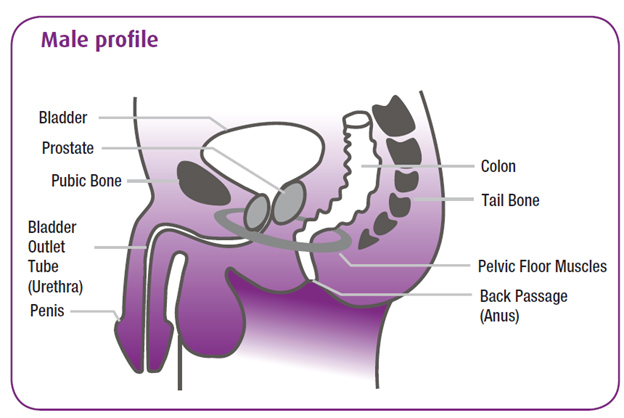Download this article as a PDF
Incontinence is not an inevitable part of ageing, and it is not a disease. In fact, it’s a symptom or side-effect of another medical condition. Male urinary incontinence may be caused by any number of health conditions.
Prostate problems and the treatments required to correct them are the most frequent causes of urinary incontinence in men.
Most men have temporary incontinence following surgery for prostate cancer.
The severity of urinary incontinence in men ranges from partial to complete loss of bladder control.
They may experience varying degrees of urine loss, and the incontinence may change over time.
For example, men with light incontinence may leak a little when they laugh or cough, while men with heavy incontinence may be experiencing continuous leakage.
No two men are alike, and no two men are affected by incontinence the same way.
Male waterworks
To understand the problem, it helps to understand how your waterworks actually function.
The bladder is a storage organ that sits in your pelvis.
Urine is made by your kidneys and stored in the bladder until you are ready to empty it. When you go to the toilet your bladder outlet muscles (urethral sphincter and pelvic floor) relax and your bladder contracts (squeezes) emptying your bladder of urine.
Your brain controls your bladder by sending messages to tell it when to hold on and when to empty.
Urine is about 95 percent water and five percent waste. Some people incorrectly believe that by drinking less fluid, they will reduce their bladder control loss. In fact, urine that is more concentrated due to lack of fluid intake can irritate the bladder and cause more serious problems such as infection and dehydration. In addition, inadequate fluid intake can cause constipation, which may also make



